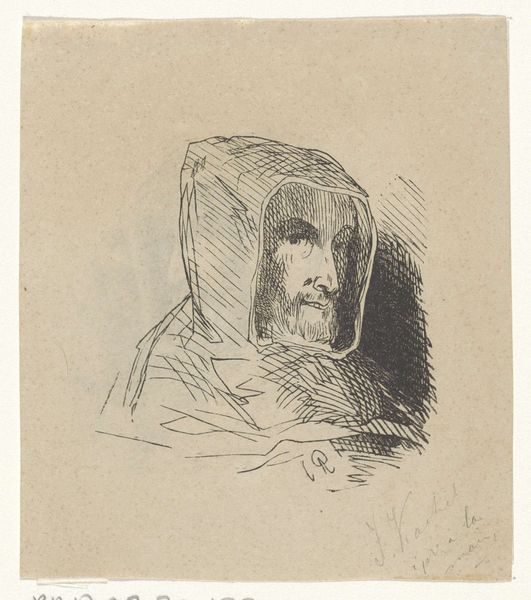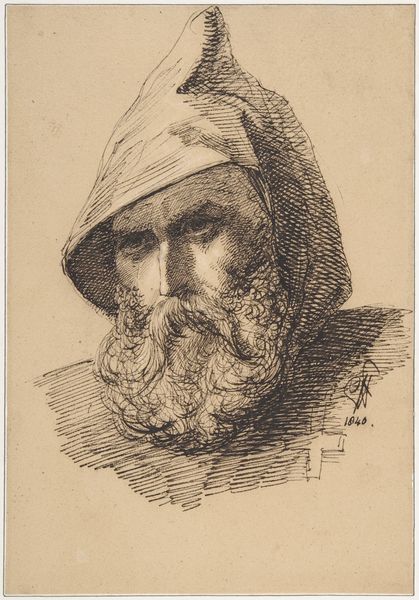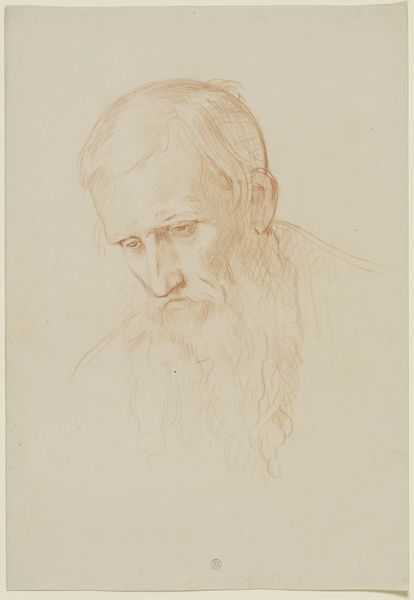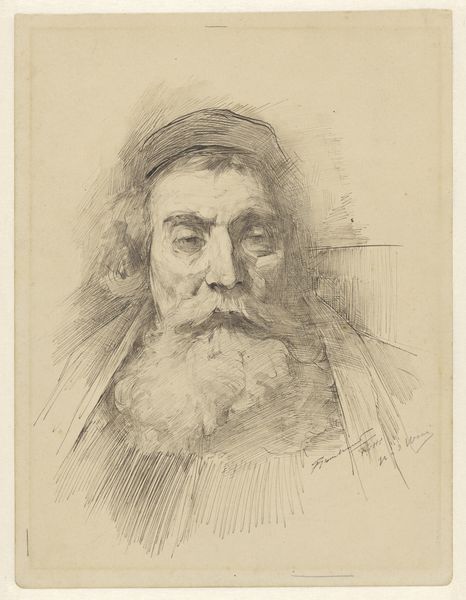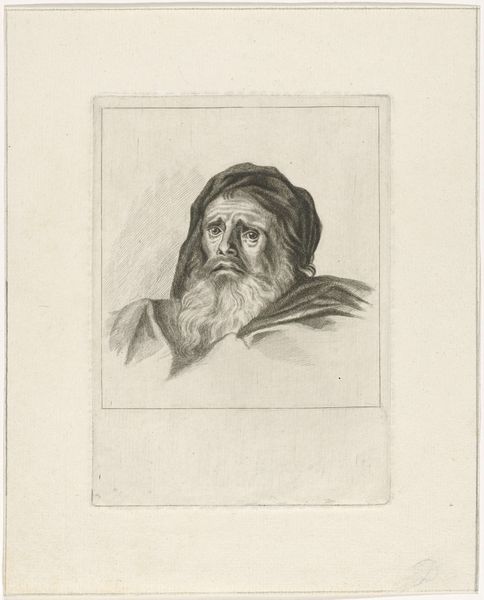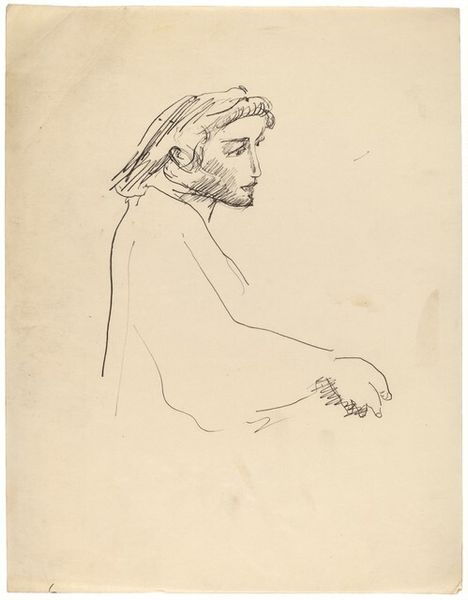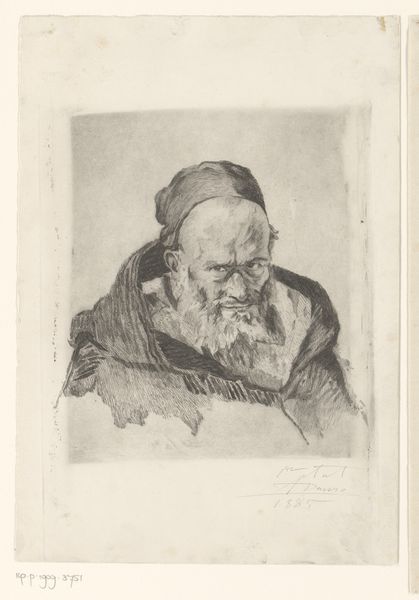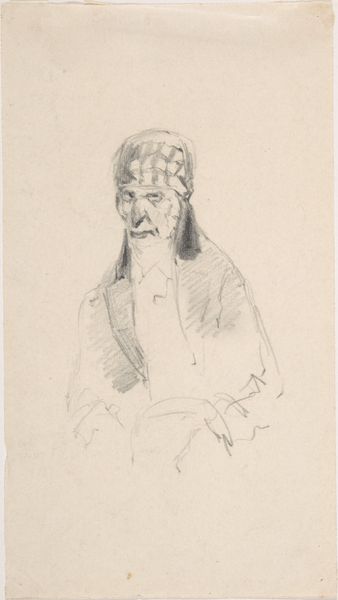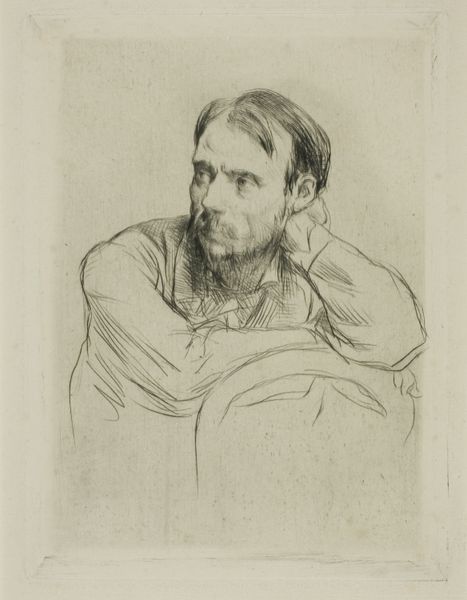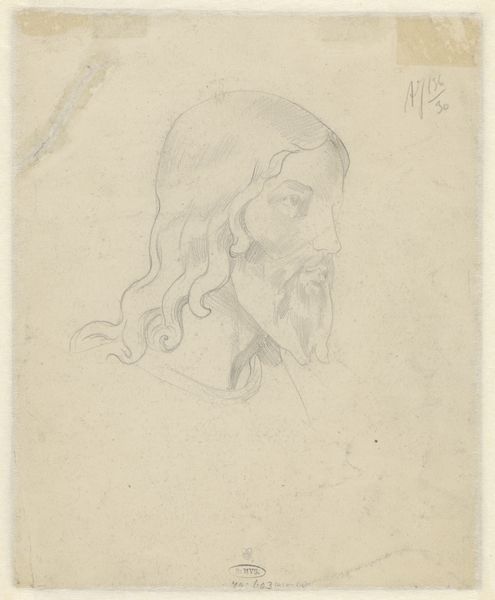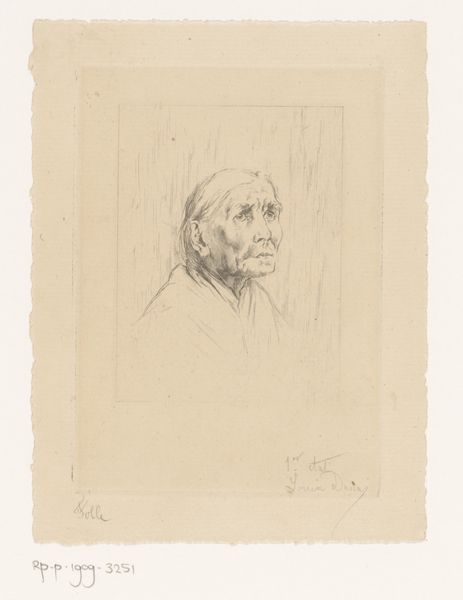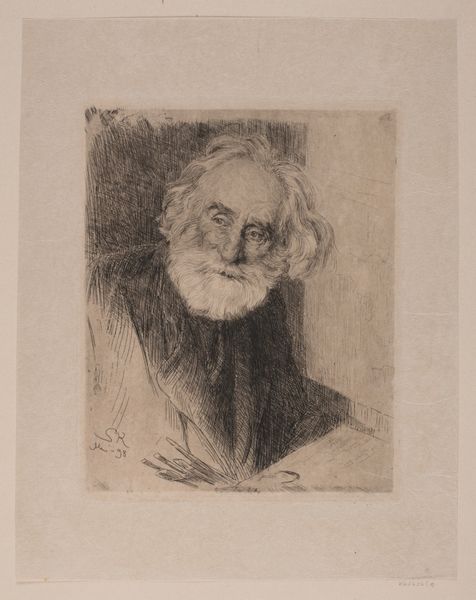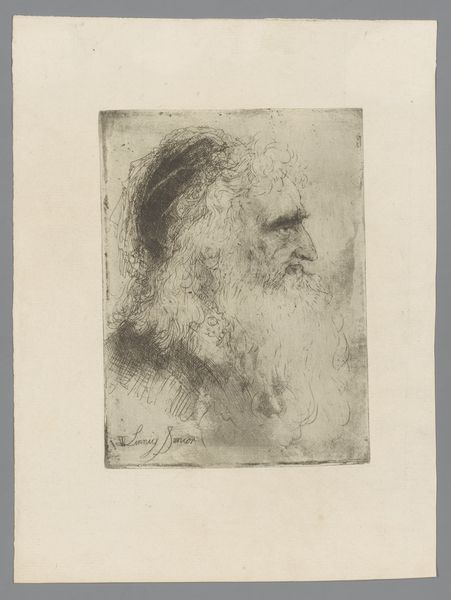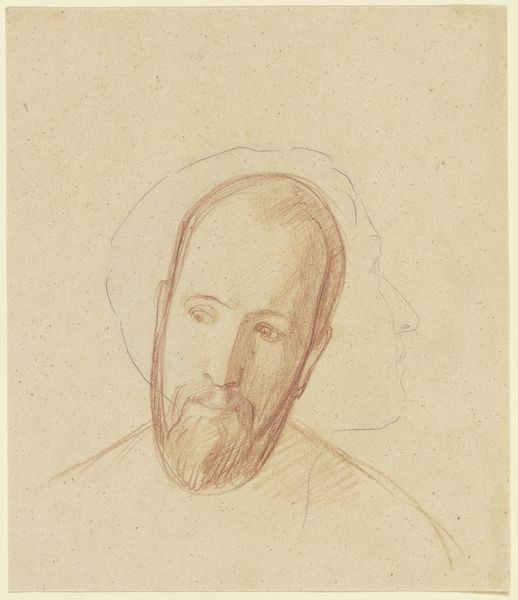
drawing, mixed-media, pencil, charcoal
#
portrait
#
drawing
#
mixed-media
#
charcoal drawing
#
pencil drawing
#
pencil
#
portrait drawing
#
charcoal
#
portrait art
Dimensions: sheet: 25.9 × 204 cm (10 3/16 × 80 5/16 in.) mount: 35 × 29.6 cm (13 3/4 × 11 5/8 in.)
Copyright: National Gallery of Art: CC0 1.0
Curator: Here we have John Frederick Lewis's "Head of a Spanish Monk," created between 1832 and 1834, a mixed-media work using pencil and charcoal. Editor: There's a palpable somberness. The monk’s gaze is downward, his posture suggesting contemplation, almost defeat. And it's quickly done, a study perhaps. Curator: Note the artist's mark-making. See the deliberate, controlled strokes which define the contours of the face, compared to the freer lines suggesting the draped hood. Lewis has carefully built form with these contrasts in textural rendering. Editor: The contrast intrigues me, especially the raw, sketch-like quality versus the refined facial features. What's the socioeconomic background to this "Spanish Monk"? Was Lewis exploring religious piety, or was it an engagement with the labor of monastic life? Curator: The portrait resides in a liminal space between study and finished work, and, given Lewis's fascination with detailed observation, it invites an understanding of how a craftsman, an artist in this instance, meticulously translates form and emotion into art. Semiotically speaking, we decode how subtle differences between form and its content influence the artwork's narrative impact. Editor: And the materiality supports this ambiguity! The combination of pencil and charcoal reflects available materials of the time for preliminary portraiture and underscores the production means. The raw underdrawing juxtaposed against careful attention in select passages makes me curious about its creation. Was this piece perhaps part of an academic setting or quick sketches for travel? Curator: Precisely! The economy of line coupled with calculated shading yields both psychological depth and technical virtuosity, embodying Romanticism. Its value rests not in pristine illusionism but in an honest exposure of method, an appreciation of its facture. Editor: Examining its production highlights the physical constraints—pencil, charcoal, paper—reflects both his skill and that of similar image makers that came before him, within and beyond painting traditions. How he manipulates material to give volume becomes significant, the physical labor to materialize expression and belief. Curator: Exactly. By decoding its composition, we discover this work as more than just a simple "study". Through close inspection and consideration, this becomes an artful manipulation and construction with an understated reverence, reflecting his devotion as a craftsman, his devotion in turn reflected by his chosen subject. Editor: A productive conversation! Looking at this work again, considering materials and process grants insights not just in aesthetics, but into artistic endeavors of the era and, above all, humanity, with this Spanish Monk right in its core.
Comments
No comments
Be the first to comment and join the conversation on the ultimate creative platform.
